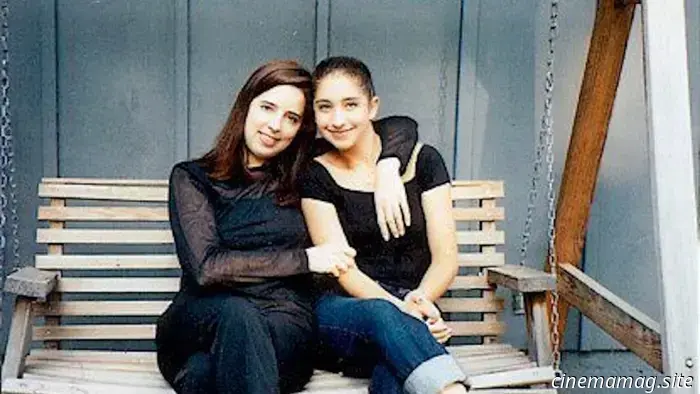
How the Death of My Sister on 9/11 Inspired Me to Create the Ethics Resource Library for the Documentary Producers Alliance
Sarah Rachael Wainio is a documentarian with credits from various platforms including The Food Network, FacebookWatch, Netflix, Max, and MTV, where she produced the initial three seasons of Teen Mom: Young + Pregnant, as well as TLC's 90 Day Diaries: Ukraine. Additionally, she co-chairs the ethics task force for the Documentary Producers Alliance. In the following piece, she shares her motivations for establishing the Ethics Resource Library, a free tool designed to assist documentarians in addressing ethical challenges.
When I embarked on the creation of the Ethics Resource Library, I certainly had altruistic intentions, but my fascination with true crime also played a role – particularly in how that genre has impacted my own struggles and healing.
I usually watch a documentary on its release day, logging it in my Letterboxd diary along with details about where and with whom I watched it, but I refrain from writing a review. I hesitate to share raw feelings like, “the mother’s account of the lack of remains from the crime scene resonates deeply.” My urge to bear witness stems from personal experience. This makes me uneasy, as I wonder if I should respect the privacy that I've sought in my own life, yet I find it difficult to stop engaging with it.
Sarah Rachael Wainio Remembers Her Sister Through the Ethics Resource Library
A photograph of Sarah Rachael Wainio and her sister, Elizabeth, taken in Asheville, North Carolina, in August 2001. Photo by Esther Heymann.
My older sister, Honor Elizabeth Wainio, was murdered on September 11, 2001. She was on United Flight 93, the fourth of four planes hijacked that fateful morning. My family was suddenly thrust into an unfamiliar media environment at the start of the 2000s, just before the “Golden Age” of nonfiction. In a time before Facebook, I received direct messages via MySpace and an AOL email account that Internet sleuths managed to uncover.
I appeared in several documentaries, recounting the moment I learned about my sister's death. Having experienced the consequences of my personal tragedy becoming national news, I find myself pondering: Why am I so drawn to seeing my own suffering mirrored in others' experiences? I believe it’s because I feel less isolated when I witness fellow survivors of trauma in the profoundly intimate manner that documentaries provide.
I was just 14 when my sister was killed; not yet an adult, but no longer a child. It was my second week of high school, navigating that challenging transition even without personal tragedy. Lacking the words to express my pain, I turned to television.
Hearing others articulate their shocking and uniquely horrific experiences gave me an odd sense of hope, as I related to them without needing further explanation: These interviewees had survived. Look at them; they are still here. Continuing on was not always an easy choice for me, nor do I think it was for them. Yet, I was not alone.
Although I find my desire for this connection somewhat troubling, I understand my compulsion to seek out this unregulated televised support network for trauma survivors. While I felt a deep bond with the documentary participants, I often wondered how they felt about being represented in the films — not just in terms of their portrayal but also about their overall experience throughout the process.
Almost a decade ago, I was invited to present a lecture on Visibility and Validation in Nonfiction Storytelling. As I prepared for my lecture at Fordham University’s Center for Ethics Education, I came to a shocking realization: There is no ethical code to guide documentary filmmakers. How is this possible?
Co-chairs of the DPA Ethics subcommittee Lisa Leeman and Sarah Rachael Wainio at the Ethics Resource Library launch at the Tribeca Storytelling Summit. Photo by Joseph M. Schroeder.
Eventually, I discovered the work of the Center for Media and Social Impact at American University. Their study, Honest Truths: Documentary Filmmakers on Ethical Challenges in Their Work, revealed that while filmmakers were keenly interested in acting ethically, they were understandably reluctant to accept a formal code of ethics.
I asked myself: Could I create a consolidated space where filmmakers could access existing resources from thought leaders like the Documentary Accountability Working Group (DAWG), Kartemquin Films, Peace is Loud, Represent Justice, the IDA, FWD-DOC, and DocuMentality? And if so, what form would it take?
My response: a library.
Libraries have always been about granting access to information and culture. If I could establish a free library, filmmakers would be empowered to create the best work with minimal harm. As a producer, I recognize the responsibility involved. Often, the producer is tasked with caring for both the on-screen and off-screen team. When dealing with trauma, life, and death, that responsibility becomes immense.
The Documentary Producers Alliance, with its relentless support for filmmakers, was the perfect fit for the Ethics Resource


Other articles
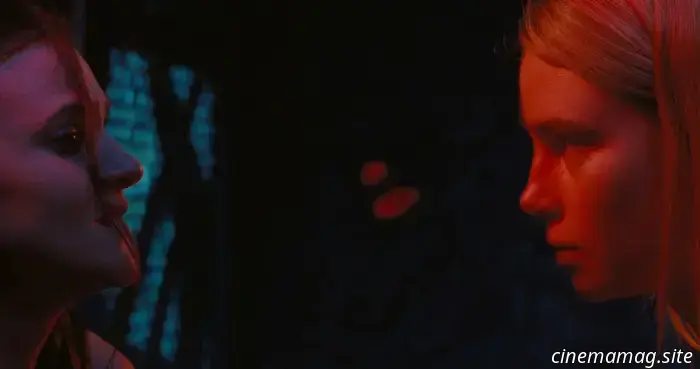 Fantasia Review: Julie Pacino’s I Live Here Now is a Psychodrama That Welcomes Disturbing Humor
Rose (Lucy Fry) has always been aware that she cannot have children. The heartbreaking outcome of a surgery she underwent in childhood left a traumatic imprint on her mind, manifesting as a recurring nightmare, and this realization has become a significant aspect of her identity. It is a vital component of the puzzle that defines her perceived brokenness. This is the reason she struggles to understand.
Fantasia Review: Julie Pacino’s I Live Here Now is a Psychodrama That Welcomes Disturbing Humor
Rose (Lucy Fry) has always been aware that she cannot have children. The heartbreaking outcome of a surgery she underwent in childhood left a traumatic imprint on her mind, manifesting as a recurring nightmare, and this realization has become a significant aspect of her identity. It is a vital component of the puzzle that defines her perceived brokenness. This is the reason she struggles to understand.
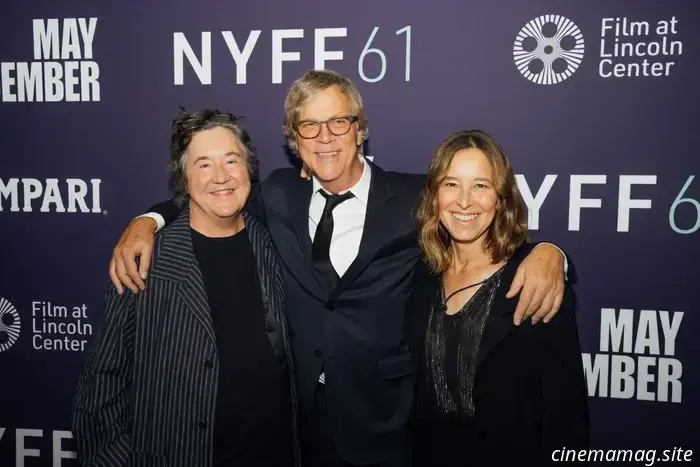 The B-Side – Christine Vachon and Pamela Koffler from Killer Films
Greetings from The B-Side! In this space, we discuss film stars, directors, and occasionally - just occasionally - the studios behind the films featuring those talents! We had the privilege of speaking with Christine Vachon and Pamela Koffler from Killer Films to celebrate Metrograph’s 30th Anniversary program, with screenings commencing on August 2.
The B-Side – Christine Vachon and Pamela Koffler from Killer Films
Greetings from The B-Side! In this space, we discuss film stars, directors, and occasionally - just occasionally - the studios behind the films featuring those talents! We had the privilege of speaking with Christine Vachon and Pamela Koffler from Killer Films to celebrate Metrograph’s 30th Anniversary program, with screenings commencing on August 2.
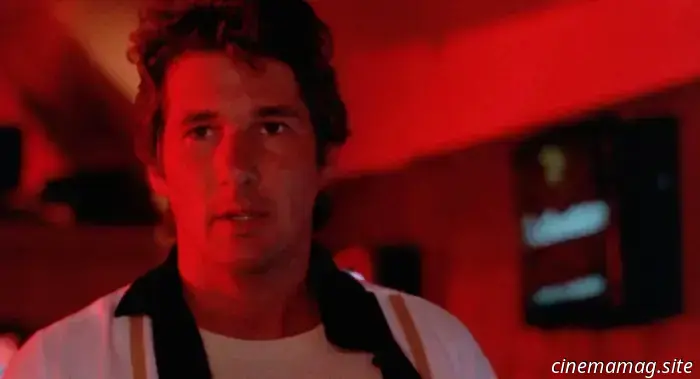 NYC Weekend Viewing: Breathless, Barbara Loden, Birth, and More
NYC Weekend Watch is our weekly summary of repertory options. Roxy Cinema, in conjunction with a new 4K release, will show Jim McBride's Breathless on 35mm this Friday; City Dudes is back on Saturday; and a print of Snake Eyes will be screened over the weekend. At Film at Lincoln Center, there is a retrospective on Gene Hackman, showcasing a variety of his films on 35mm, including works by Clint Eastwood, William Friedkin, and Francis Ford.
NYC Weekend Viewing: Breathless, Barbara Loden, Birth, and More
NYC Weekend Watch is our weekly summary of repertory options. Roxy Cinema, in conjunction with a new 4K release, will show Jim McBride's Breathless on 35mm this Friday; City Dudes is back on Saturday; and a print of Snake Eyes will be screened over the weekend. At Film at Lincoln Center, there is a retrospective on Gene Hackman, showcasing a variety of his films on 35mm, including works by Clint Eastwood, William Friedkin, and Francis Ford.
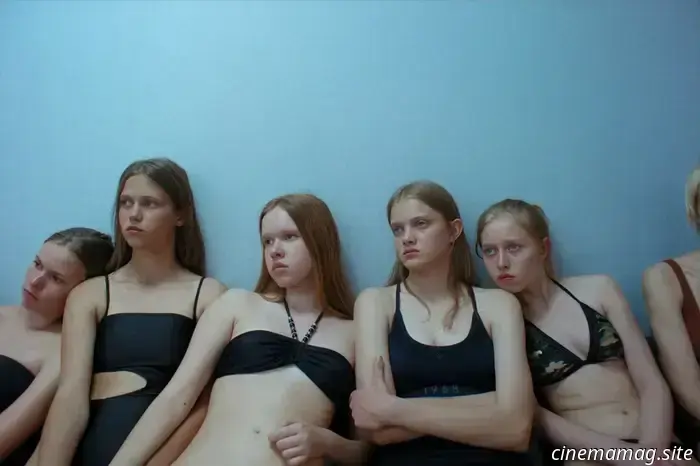 Toxic Review: Saulė Bliuvaitė’s Drama, Awarded at Locarno, Will Embed Itself Within You
Note: This review was first published as part of our 2024 Riga coverage. Toxic is now available for streaming on MUBI. It's unfortunate that Toxic didn't release in time for the recent discussions surrounding body horror. Saulė Bliuvaitė's debut feature, which won the Golden Leopard at this year's Locarno Film Festival, contributes significantly to the genre.
Toxic Review: Saulė Bliuvaitė’s Drama, Awarded at Locarno, Will Embed Itself Within You
Note: This review was first published as part of our 2024 Riga coverage. Toxic is now available for streaming on MUBI. It's unfortunate that Toxic didn't release in time for the recent discussions surrounding body horror. Saulė Bliuvaitė's debut feature, which won the Golden Leopard at this year's Locarno Film Festival, contributes significantly to the genre.
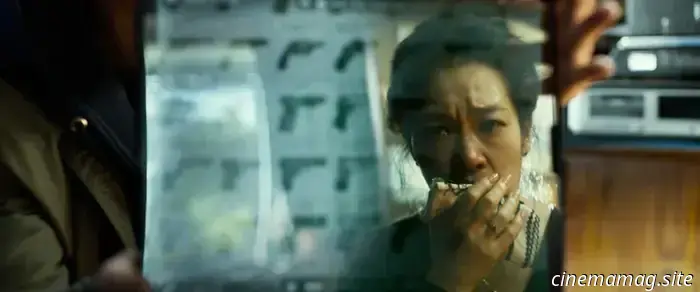 The initial teaser for Park Chan-wook's No Other Choice reveals a striking intensity.
One of the major premieres revealed for this year's Venice Film Festival is Park Chan-wook's No Other Choice (with Neon managing the U.S. release), for which a short, rapid teaser has been released that suggests ties to Donald E. Westlake's source material, The Ax. This adaptation of the 1997 novel—originally filmed by Costa-Gavras in 2005—falls within the black comedy genre.
The initial teaser for Park Chan-wook's No Other Choice reveals a striking intensity.
One of the major premieres revealed for this year's Venice Film Festival is Park Chan-wook's No Other Choice (with Neon managing the U.S. release), for which a short, rapid teaser has been released that suggests ties to Donald E. Westlake's source material, The Ax. This adaptation of the 1997 novel—originally filmed by Costa-Gavras in 2005—falls within the black comedy genre.
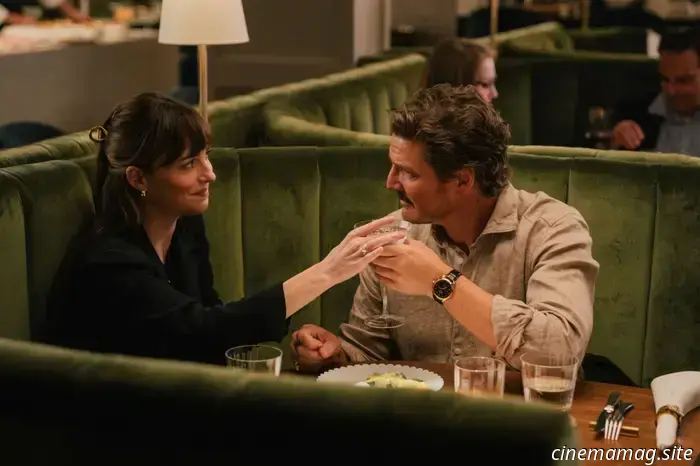 Now Available for Streaming: Materialists, Dangerous Animals, Little Buddha, Northern Lights, and More
Every week, we showcase the significant titles that have recently become available on streaming services in the United States. Take a look at this week's picks below and previous compilations here. The Assessment (Fleur Fortune) The "old world" is a desolate place. People continue to exist there, but not for long. In contrast, those in the "new world" live for centuries, thanks to
Now Available for Streaming: Materialists, Dangerous Animals, Little Buddha, Northern Lights, and More
Every week, we showcase the significant titles that have recently become available on streaming services in the United States. Take a look at this week's picks below and previous compilations here. The Assessment (Fleur Fortune) The "old world" is a desolate place. People continue to exist there, but not for long. In contrast, those in the "new world" live for centuries, thanks to
How the Death of My Sister on 9/11 Inspired Me to Create the Ethics Resource Library for the Documentary Producers Alliance
Sarah Rachael Wainio discusses how the murder of her sister on 9/11 inspired her to establish the Ethics Resource Library for the Documentary Producers Alliance.
